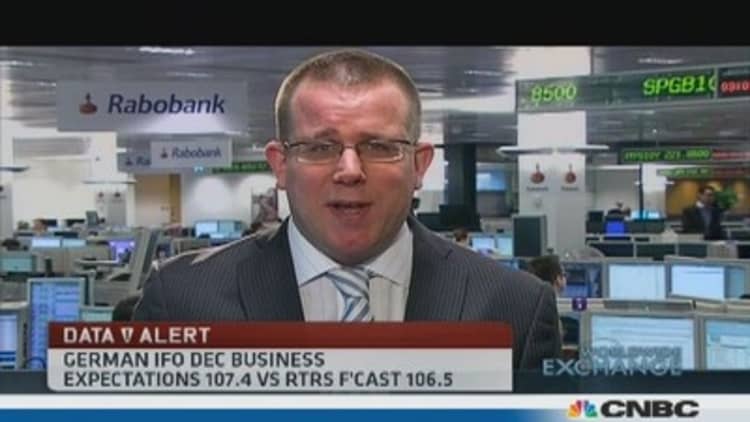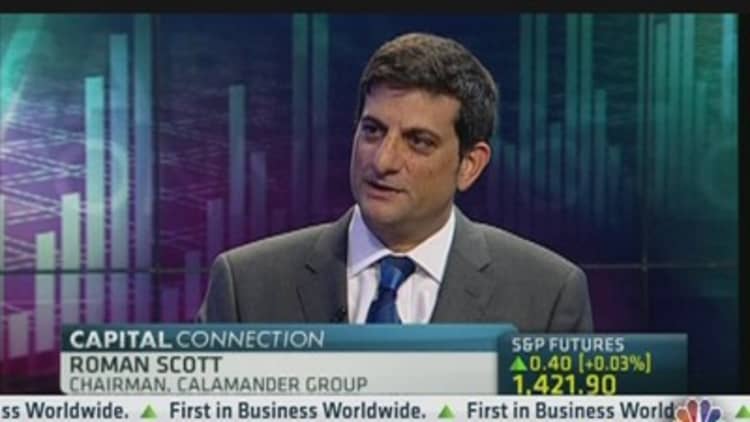Jack Lew, the US Treasury secretary, will renew pressure on Germany to boost domestic demand and embrace a deeper banking union when he visits Berlin this week, amid persistent divisions between the two countries over economic policy.
Mr Lew will meet Wolfgang Schäuble, Germany's finance minister, in the middle of a three-day tour of Europe that will also include stops in France and Portugal.
(Read more: US says German export dependence hurts global economy)
The trip comes little more than two months after the US Treasury's semi-annual currency report denounced the eurozone's largest economy for its large, export-driven current account surplus, arguing it created a "deflationary bias" for the European and global economy.
"The weak growth of domestic demand in Germany we think has impeded stronger, more balanced adjustment with the euro area and global growth more broadly," a senior Treasury official said ahead of Mr Lew's visit, suggesting the US administration continued to view this as a problem. The official noted that the European Commission had expressed similar concerns about Germany's economic policies.
More from the Financial Times:
Why Germany needs a sense of proportion
Obama must sell trade deals to left wing
Euro pushed higher by crisis repayments
After the Treasury report was released in late October, Germany struck back with vigour against the criticism, saying no imbalances needed correcting and its current account surplus was "no cause for concern" for itself, the eurozone or the global economy.
Mr Lew is likely to get a similar response this time. With the economy growing at a healthy clip by European standards and unemployment low, German officials see no need for dramatic boosts to consumption. German economists predict that the new government's planned pensions increases and minimum wage should modestly raise consumption – but will take time to implement.
Meanwhile, the new coalition has promised to respond to calls for more investment in the country's creaking infrastructure, but only if there are no increases in taxes or debt.

The senior US Treasury official said that Mr Lew wanted to hear more detail from Mr Schäuble on domestic economic reforms foreseen under the new coalition agreement" and would "continue conversations on which reforms have the best chance to boost domestic demand".
The US will also press Germany and other eurozone countries to take further steps towards a banking union that it sees as essential to cushioning the bloc from another financial shock.
Mr Lew has been Treasury secretary for less than a year, replacing Tim Geithner, and has gradually been gaining familiarity with his European counterparts. The health of the eurozone economy remains a key preoccupation for the Obama administration, but US officials have limited influence and face a tricky task in trying to push European governments towards certain policies without appearing to lecture them.
(Read more: Germany rejects US Treasury criticism)
Ted Truman, a senior fellow at the Peterson Institute for International Economics in Washington, says that meetings in Germany could help clear the air after the tensions over the currency report, though neither side is expected to back away from its views.
"The Germans – at least in their public pronouncements – have not been particularly receptive to the criticism that came from the Treasury. There will be some conversations about making sure they, at a minimum, understand each other and where they are coming from," Mr Truman said.

While pushing surplus countries in Europe to boost domestic demand, Mr Lew would also prod others to stretch out their fiscal consolidation "where feasible" as the bloc's economic prospects brightened a little, the Treasury official said.
"It appears that the long recession in the region is coming to a close; euro members are regaining financial stability," the Treasury official said.
(Read more: Will the euro'speak' German or European?)
"Despite progress we have seen European leaders make, domestic demand in the euro area remains below its 2009 low in real terms. The euro area is experiencing the highest levels of unemployment in at least 20 years while disinflation remains an acute concern," the official added.
In France, Mr Lew will meet President François Hollande and Pierre Moscovici, the finance minister, and will press Paris for a "balanced growth strategy" as it embarks on domestic reforms.
In Portugal, Mr Lew is expected to deliver a message of encouragement for a country that is emerging from crisis footing and "has ably navigated a narrow path in securing support for its economic policies as well as support from its official lenders", the Treasury official said.
A Treasury official said Mr Lew's trip would also help advance EU-US trade negotiations, which have been under way for about six months. The Treasury has responsibility for many thorny issues in the talks related to the financial services sector, from market access to regulation.


